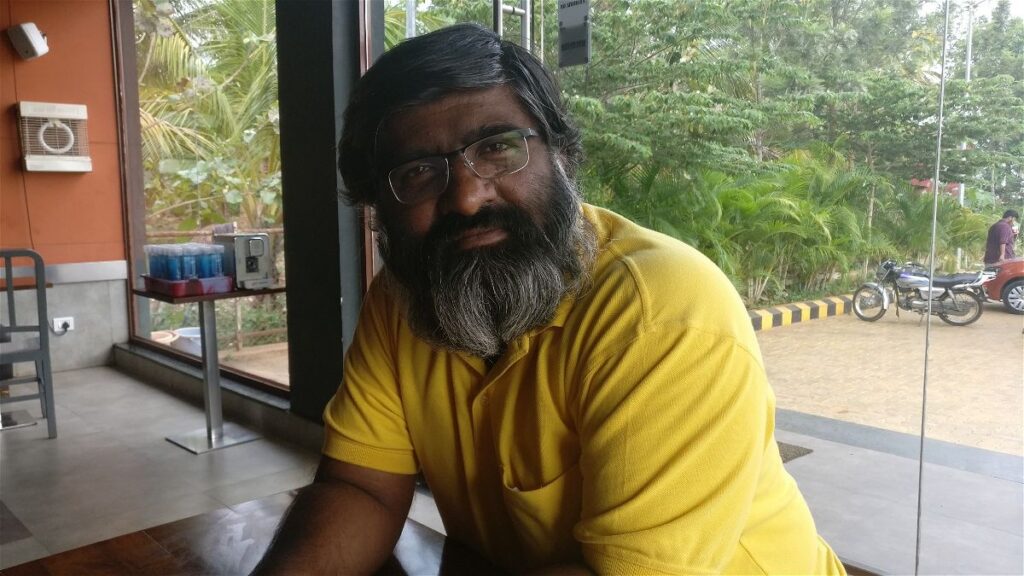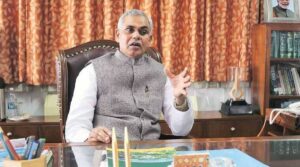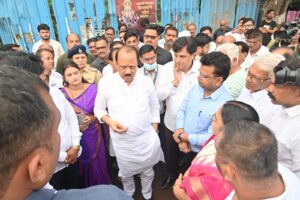From IT to Agriculture: Meet Shashi Kumar, Redefining India’s Dairy Sector Through Rural Entrepreneurship

From IT to Agriculture: Meet Shashi Kumar, Redefining India’s Dairy Sector Through Rural Entrepreneurship
The inspiring journey of Akshayakalpa Organic’s co-founder, merging sustainable agriculture with rural empowerment.
In 2010, Shashi Kumar, a Bengaluru-born tech professional with a 17-year career, including 13 years at Wipro Technologies, made a bold decision. He left his thriving corporate job to co-found Akshayakalpa Organic, India’s first certified organic dairy enterprise. Driven by a desire to transform the lives of rural farmers, Kumar aimed to build a sustainable agricultural ecosystem that empowers small and marginalized farming communities.
An engineering graduate in computer science from Bengaluru University, Shashi Kumar later earned a Master’s in Telecommunication Engineering from the Illinois Institute of Technology. Despite his impressive credentials and successful tech career, Kumar felt a deeper connection to agriculture, stemming from his childhood in a farming family. Witnessing the economic struggles of small farmers, including his own father, Kumar chose to address these challenges head-on.
Speaking to Rural Voice, he shared how his father had discouraged him from pursuing agriculture, calling it an economically unviable path. However, after nearly two decades in the tech industry, Kumar felt compelled to return to his roots. His vision materialized in the form of Akshayakalpa Organic, a venture focused on sustainable farming and rural entrepreneurship.
Akshayakalpa Organic: A Sustainable Revolution
Established to improve India’s dairy farming sector, Akshayakalpa empowers farmers by transforming them into entrepreneurs. The company provides technical support, financial assistance, and market access, enabling farmers to adopt organic practices that eliminate artificial fertilizers and pesticides.
Akshayakalpa’s holistic, eco-friendly approach ensures farms function as self-sustaining ecosystems. Methane gas derived from cow dung powers daily operations, while the residue serves as organic fertilizer. Additional practices, including rainwater harvesting, tree integration, and closed-loop waste management, enhance sustainability. Over a decade, these efforts have increased soil organic carbon levels from 0.3% to 0.98%, restoring soil health and boosting productivity.
A key objective of Akshayakalpa is to uplift farmers economically. By collaborating with young farmers who have abandoned agriculture due to its challenges, the company trains them to become successful entrepreneurs. Farmers associated with Akshayakalpa earn an average monthly income of ₹100,000 through the production of organic milk, poultry, honey, bananas, tender coconuts, and millets. This consistent income reduces dependence on volatile market conditions and erratic weather patterns.
Expanding Impact and Market Reach
Currently, Akshayakalpa operates in South Chennai, Bengaluru, and Hyderabad, serving over 60,000 customers. The company also sells long-shelf products in Pune, Mumbai, and the National Capital Region. In FY23, it reported a revenue of ₹195 crore and is on track to achieve ₹300 crore in FY24.
The venture has garnered support from the Rainmatter Foundation, a nonprofit backed by Zerodha founders Nithin and Nikhil Kamath. This partnership underscores the scalability of Akshayakalpa’s model, aligning with Rainmatter’s mission of fostering sustainable businesses.
A Vision for the Future
Akshayakalpa’s impact goes beyond individual farmers, promoting community development and creating local employment opportunities. Its diverse product range includes organic milk, fruits, vegetables, poultry, and honey. With ambitious plans to expand into new markets, Akshayakalpa aims to become a pan-India brand, revolutionizing the way India approaches sustainable agriculture.
Shashi Kumar’s journey from tech professional to organic farming pioneer reflects his commitment to creating meaningful change. Through Akshayakalpa Organic, he has not only transformed lives but also set a benchmark for sustainable rural development.












